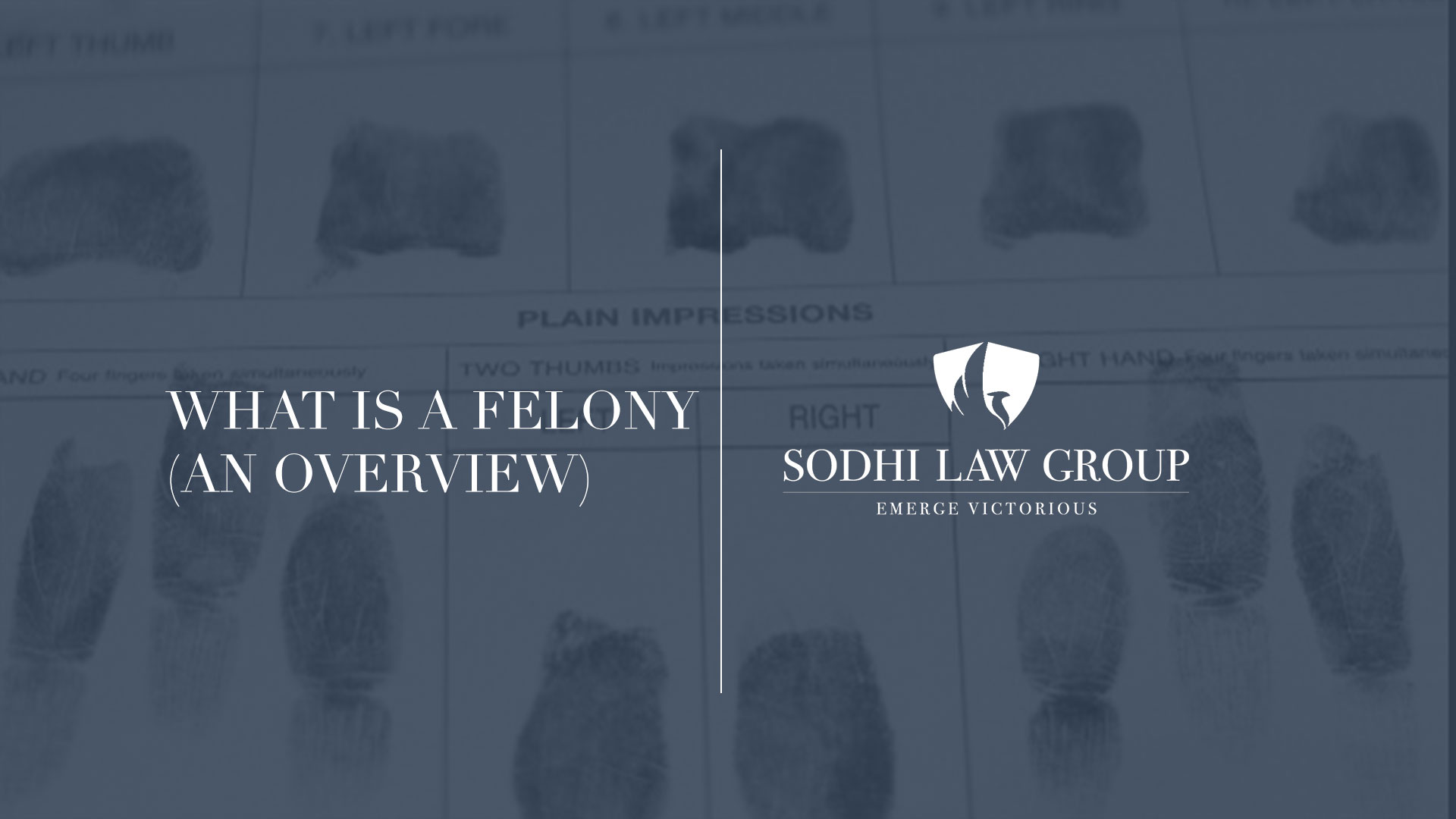Felonies and misdemeanors are terms thrown around quite a bit today in cop shows and court room TV dramas. These terms are general descriptions of crimes that are committed. The trouble is that many people do not understand the difference. Since, we don’t want to take up your entire day describing both, we will explain what a felony is.
Definition: In California, a felony is a crime that carries a maximum sentence of more than one year in jail or prison. The most serious California penalties are punishable by death. People convicted of a felony in California can be charged up $10,000 in addition to (instead of) imprisonment.
Types of Felonies:
There are two types of felonies: Straight felonies and Wobbler felonies. A Straight felony is one that can be charged and sentenced ONLY as a felony. It cannot be charged as, or reduced to, a misdemeanor. For example, murder is a Straight felony, while forgery is a Wobbler felony. Forgery can be charged as either a Misdemeanor or Felony, depending generally on the amounts involved.
Penalty for a Felony:
Penalties vary from crime-to-crime, and felony-to-felony. Often, imprisonment in county jail or California state prison and/or a fine of up to $10,000 is the penalty for a felony. The sentences for a felony also vary between three types of terms: Low Term, Middle Term, and High Term. These terms vary depending on the severity of the criminal act, or the past history of the offender.
Probation:
Felony Probation is attainable and is designed to rehabilitate offenders. There are conditions that must be met to maintain your probationary status or else you could find yourself back in prison.
These conditions consist of:
- Monthly meetings with a probation officer
- Payment of victim restitution
- Individual or group therapy
- Drug testing (if the felony involved a California drug crime)
- Community service or labor
- Searches of the offender’s person or property with or without a warrant
If parole is violated, the judge can revoke the probation and send the offender back to prison or jail for up to the maximum sentence for the crime.
Parole:
Parole is often confused with probation. The reason being is that California Parole laws are like probation laws, but there are specific conditions that need to be met. The offender must have been sentenced to a California State Prison and the offender must have completed the sentence or been granted early release.
That is a general overview of what constitutes a felony in California. We’ll get into more details on misdemeanors a little later. We are extremely familiar with both and have defended many clients in these types of cases. If you or someone you know need assistance, please reach out to us and we’ll discuss how we can help. Our phone number is (209) 900-8200 or you can fill out our web form and someone from our Modesto office will reach out to you. Stay tuned for more information all things criminal law in Modesto!


